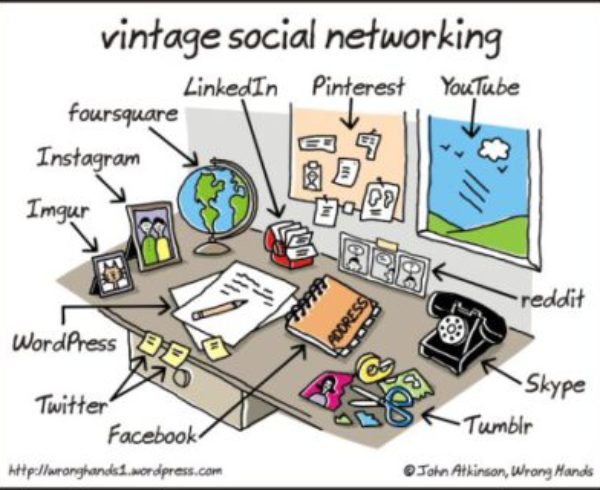I can be pretty oblivious. No really…..I am. It would have caused me many an embarrassing moment if only I knew enough to be embarrassed.
Yet, while most people would find being oblivious a negative trait, I’ve come to realize that often our weaknesses can also be our strengths.
Take hiring as an example. I’ve been in business for 26 years and I’ve hired a lot of people. I’ve also had a history of diversity. Different ethnic, religious and sexual orientations have always been part of our make-up. The funny thing is that I didn’t drive my search in that manner. As my head of talent management says, I am “an accidental diversity employer.” It isn’t that I didn’t want to get there. It’s just that I didn’t think about it. It just happened.
Whether you say I’m oblivious or that I’m good at looking for the best in everyone. I’ve been able to create a great team of strong, diverse consultants. It comes pretty easy. When I read so much about how hard it is to create a diverse culture, I wonder, why? Why is it so hard to create a diverse culture?
I have a friend that was quite high up in a huge global Fortune 500 company as the head of HR. She retired and was in great demand elsewhere. She shared with me that she was wooed by a large financial organization to head HR. She arrived at the headquarters a couple of hours early on purpose. She spent the time watching the crowd coming to work. She noticed that there was little diversity among the people walking in. She went to her interview with the CEO and she called him out. She said that (paraphrasing), If you want a diverse workforce, then you have to hire for it.” (She is so cool).
So how do you create diversity? Simply… by being aware of your biases. I recently had scheduled an interview with a candidate that was causing me some anxiety due to a personal bias. My talent manager (of color) told me that she had never seen me like that. That comment alone pissed me off. I was probably more anxious about the fact that I was anxious than the interview itself. It wasn’t like me and I wanted to make sure that I gave this individual a fair interview.
Fast forward….the interview was great. By realizing my bias, I was able to remediate it. I evaluated the consultant fairly. I walked out wondering, what was the big deal? The candidate was engaged during the interview and we laughed A LOT! (I can sometimes be funny though my talent manager was a little jealous because she thinks she is the funny one.) I overcame my bias to realize that there was a potentially great resource for our organization.
So how it did it happen?
- The hardest part of addressing your bias is to be aware of your bias. That isn’t easy. If I didn’t have a diverse talent manager, my result might be different. She recognized my bias and put my feet to the fire on the interview. She pushed me to have the interview. Once I understood that I did have a bias, I was able to confront it.
- Having diversity in the recruiting process can help. Now I’ve had other people in the talent management role before and still had a diverse organization but nothing like today. In looking back, I might not have had as much diversity because of the bias of my talent managers. Tough to admit, but true.
- When you force yourself to address your bias, your results begin to change.
And for those of you that are assuming that with diversity I must have a lower end talent pool, (hello, bias much?), quite the contrary. As a smaller business, my talent has to be top of the line or my clients have no reason to use me.
So what? I have a diverse team. Where is the value? I have an interesting and dynamic team. We may not be huge, but we all have fun when the team comes together on Fridays. I will sometimes see friendships coming together that I’m unclear would happen otherwise. I know that I have a team that speaks to any of the needs of my clients. They have different views on life that allow them to work together– to think outside of the box. Being diverse has allowed me to truly focus on getting the best of the best. My microcosm of a company represents the world.
I may be oblivious but I’m not naïve. In our business, there are risks to diversity. Out of all the work that I’ve gone after in 26 years (oh by the way, Happy Anniversary to me), the odds are in my favor that I’ve lost something due to our diversity. That part is out of my control. Yet the diversity of my firm brings so many advantages that outweigh that one risk.
So to all of the CEOs of Fortune 1000 companies that struggle with creating diversity, I ask WHY is it so hard?
So learn a little about being oblivious. Be color blind and read the subtitles. Turns out I’m okay with being oblivious. I’ve come to understand that it is one of my greatest strengths.
Laura tries to tackle all problems with an objective eye. But if you pick your nose in public, please don’t apply for a job. There are some things she just can’t ignore.










